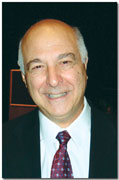Taxes on capital gains are about to increase substantially effective Jan. 1. Tax cuts established during the first few years of the Bush Administration are slated to automatically sunset. Not only will capital gains taxes increase, but an additional tax of 3.8% will also be incurred by high income earners making over $200,000 (single taxpayer) and $250,000 (married) shortly thereafter.
These two changes will increase the top capital gains rate from 15% to 23.8% in only a few years time. For business owners looking to sell or exit, not everyone will be able to exit their businesses before these new rates come about. It is with this in mind that the like-kind exchange or Internal Revenue Code Section 1031 Exchange will become critically important once again.
The code states no gain or loss is recognized on the exchange of property for productive use in a trade or business. Changes aren’t recognized for investment if the property received is of like-kind and held for productive use in a business or for investment either. Non-recognition does not apply to stocks, bonds and notes, certificates of trust, beneficial interests, partnership interests, or securities. Like-kind exchanges also do not apply to exchanges of property the taxpayer uses for personal purposes. Personal use property includes personal residences and personal automobiles among other property.
Congress is always interested in promoting investments in the economy. Taxes typically stifle investment value, so in an attempt to limit the amount of taxes that are charged in investment transactions, Congress created a section of the code that eliminates taxes due on appreciated property in specific transactions, known as Section 1031 transactions. Property eligible for exchange treatment is best classified into two categories: non-real and real property. Non-real property or personal use property is the more difficult of the two categories to handle and is divided into different classes of goods which are simply too many to list here. Some of the easier transactions in the non-real property categories include the following: Light trucks must be exchanged for light trucks, animals must be exchanged for essentially the same animal, and similar equipment must be exchanged for other similar equipment.
This has been said to be exchanging “dirt for dirt.” Requirements for exchanging real property are not nearly as stringent as for non-real property. As a matter of public tax policy, this is probably because real property typically appreciates in value and non-real or personal property will tend to depreciate with business use.
When exchanging like-kind property for like-kind property, no gain or loss is recognized. The basis or amount on the books for the property remains the same. Therefore, when the property is exchanged the result is that no tax is due or payable on the transaction.
For those looking to exit a business, consider exchanging your building for a productive property in the country, of which you could possibly make partial personal use of in the future. The person desiring your business in this instance, if he/she doesn’t already own productive land that you want, can purchase land and exchange it with you for your building. There are all kinds of ways one can structure a like-kind exchange. Simply stated, you are not limited to doing a simple swap.
Contact the professionals at the Center for further advice on this tax strategy.

